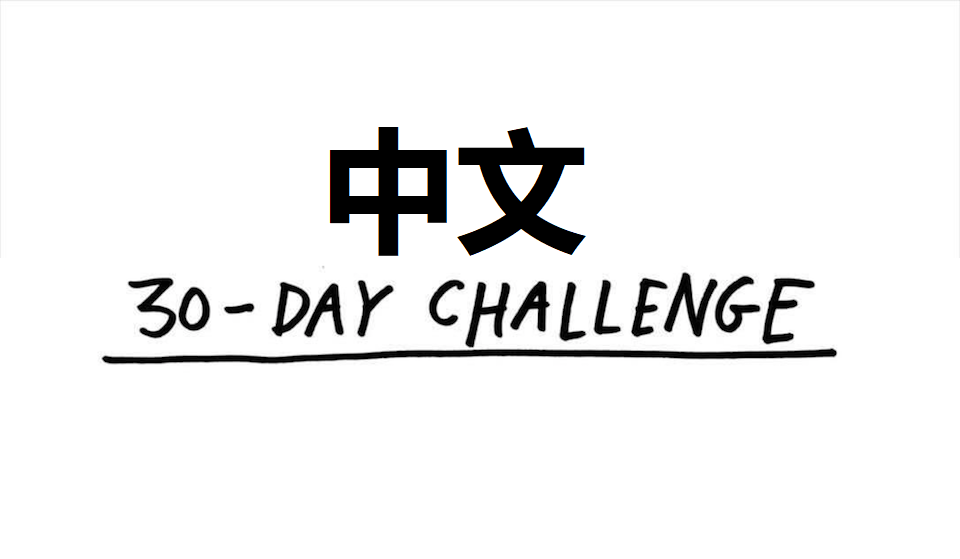Mandarin Monday: The #30DayChallenge Learning New Chinese Words
How many of you have written “exercise” or “get fit” on your New Year’s resolution lists? They’ve both been my annual pledge but I have still yet to develop a perceptible six-pack. Let’s face it: eating makes us happier than working out. And another thing: these resolutions are often related to vanity so they end up in vain.
That's exactly why we must often incentivize ourselves in order to reach any kind of level of success, especially when it involves doing something we'd rather not do. Earlier this month, I came across this handy chart on WeChat, detailing a 30-day challenge:

The challenge is easy in theory: select that one thing that you want to do for 30 days and mark each number as you finish your task. Then specify a “reward,” which you will gift yourself upon completing the challenge. You can start the challenge anytime, but you will need to achieve the 30-day streak in order to get the reward (no cheating!).
For my 30-day challenge, I made it my goal to chip away at Chinese. Specifically, it involves learning at least one new Chinese word a day in order to expand my Chinese vocabulary. I realized that I can learn more words if I select a “base” character and check out the dictionary/Pleco to see its derivatives. Zhongwen.com is also really good for learning this way but may be a little complex or daunting for beginners.
Although one word a day doesn't sound too challenging, you'll of course need to learn the character, the pinyin, the tone, and the meaning. If you want to dig even deeper, memorize the radical too (this will help you down the road when you come across characters with a similar route or meaning). Beginners might opt just to learn any of these components, though to truly understand a word you should attempt to remember them all.
I began the challenge on Jan 8, and my very first word/character for the challenge was 老 (lǎo, “old”) after getting inspiration from a meditation session I had recently attended. My friend called the monk who led the session 师父 (shīfu, “master”), which led me to ask if I could call him 老师 (lǎoshī, “teacher”). My friend said yes, though shīfu was more suitable. The shīfu then explained the context and route of lǎo in Chinese word construction and gave some derivatives like 老虎 (lǎohǔ, “tiger”); 老伴 (lǎobàn, “grandparent”); and 老爸 (lǎobà, “father”), thereby giving me not one, but four words to juggle.
I invite you to also partake in this challenge. It doesn't have to be learning Chinese words, but since you're here, why not give it go. You can also browse our previous Mandarin Mondays for inspiration here.
This article originally appeared on our sister site beijingkids.
Images: creativekleptomania.com







